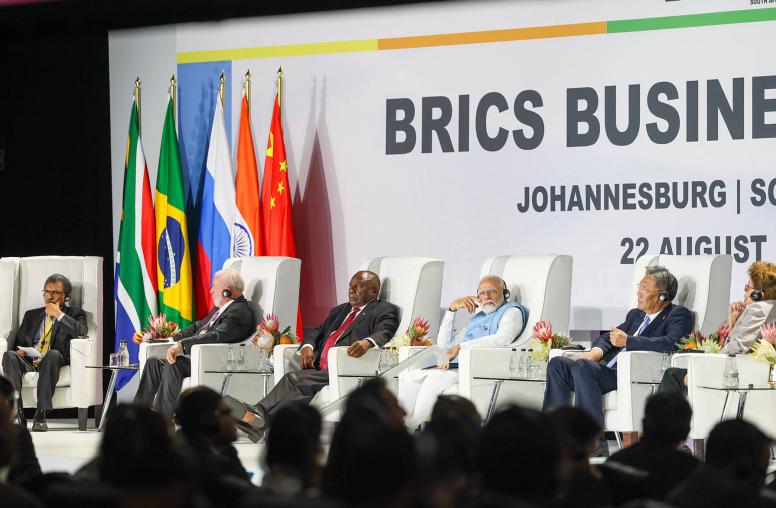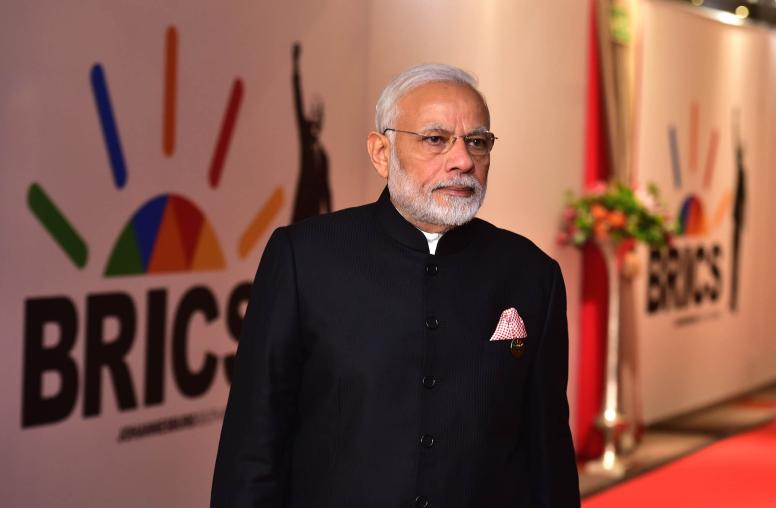Mandela’s Legacy: Timing, Spoilers, and Responsibility for Peace
As we mourn the death of Nelson Mandela, we can benefit greatly from the lessons he has given us on peace making. As ambassador to South Africa from 1992 to 1995, I came to know him and work with him during those fateful days of negotiations that eventually led to his election as president in 1994. Three lessons from Mandela, in particular, stand out to me.

First, Nelson Mandela understood from the beginning that, ultimately, there would need to be a negotiated end to apartheid, that it could not be overcome through a military overthrow. He understood this even when he himself initiated the armed struggle as a way to pressure the regime.
In the critical period of negotiations that began in the late 1980s, before his release from prison in 1990, and that continued over six years, he carefully had to convince his supporters that it was time for negotiations, even when frustrations and violence marred those efforts. Throughout 1992 to 1994, he contained pressures from within his African National Congress to invade the so-called “homelands,” or to give way to the provocations of violence from the rival Inkhata Party of Mangosuthu Buthelezi. He also was able to manage the anger of his people when one of his most popular aides, Chris Hani, was assassinated. It took extraordinary leadership and commitment to principle to accomplish this.
Second, Mandela rejected offers of mediation. Indeed, so did President F.W. De Klerk. This might not be seen as a positive lesson, and not all leaders may be as capable or courageous. But both Mandela and De Klerk effectively said to the world, “This is our country, and it is our responsibility to resolve its problems.”
That not only reflected a sense of responsibility, but it meant that they would have to stand behind the agreements they made and especially behind whatever compromises each made in the process. Thus, Mandela took on the responsibility of selling to an almost incredulous ANC his agreement to a government of national unity for five years, and De Klerk gave up his much-coveted veto power in the cabinet. Each stood by these decisions.
Third, Mandela and De Klerk made a most significant agreement to overcome a breakdown in the negotiations in 1992, after a brutally violent police confrontation with demonstrators in a black township. Once tempers had cooled and some other issues were settled, the two leaders agreed that, thereafter, no act of violence would be the cause for interrupting the negotiations. In effect, they took away the power of “spoilers,” those who would try – and many did – to use violence to stop the transition. Their agreement was tested often in the next two years, but both parties maintained their commitment.
Not all lessons from South Africa are readily transferrable to other conflicts. As the U.S. Special Envoy for Sudan and South Sudan from 2011 to 2013, I watched in vain as the chief Africa Union mediator, Thabo Mbeki – Mandela’s longtime aide and presidential successor – tried to get the leaders of Sudan and South Sudan to assume the same degree of responsibility that Mandela and De Klerk had accepted. The Sudanese leaders responded better to outside pressure and mediation.
Still, the lessons from Mandela should be kept in the forefront of conflict-resolution processes: the understanding of when negotiations are the right and most effective course; how to stop spoilers from controlling the pace of negotiations; and that, in the end, it will fall to leaders to assume the ultimate responsibility for peace.
Princeton N. Lyman is senior advisor to the president of the U.S. Institute of Peace. He previously held various government and diplomatic posts, including as U.S. ambassador to Nigeria (1986-1989) and to South Africa (1992-1995).



